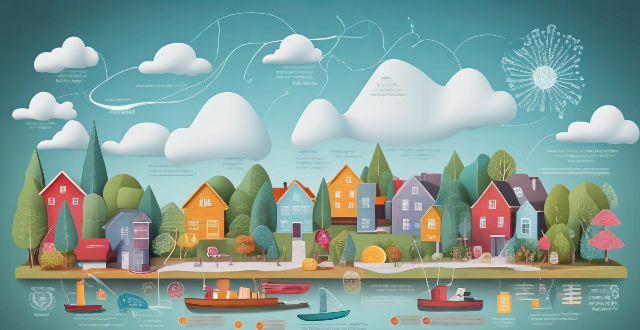This article discusses the impact of climate change on human health, highlighting various ways in which climate losses and damages can affect well-being. It covers topics such as extreme weather events causing physical injuries and illnesses, worsening air quality leading to respiratory problems, food insecurity resulting in malnutrition, increased waterborne diseases due to warmer water sources, and mental health issues arising from displacement and migration. The article emphasizes the need for a comprehensive approach to address these challenges, including mitigating greenhouse gas emissions, adapting to changing conditions, and providing support for vulnerable populations.

Impact of Climate Losses and Damages on Human Health
Climate change is a global issue that affects not only the environment but also human health. The losses and damages caused by climate change can have significant impacts on various aspects of human well-being. In this article, we will discuss how climate losses and damages impact human health.
Extreme Weather Events
One of the most direct ways in which climate change affects human health is through extreme weather events such as hurricanes, floods, droughts, and heatwaves. These events can lead to physical injuries, illnesses, and even death. For example, during a heatwave, people are at risk of dehydration, heat exhaustion, and heat stroke. Floods can cause waterborne diseases like cholera and dysentery, while droughts can lead to malnutrition due to crop failure.
Key Points:
- Physical Injuries: Injuries from storms, floods, and wildfires.
- Illnesses: Waterborne diseases, respiratory problems, and mental health issues.
- Death: Direct fatalities from extreme weather events or indirect causes like disease outbreaks.
Air Quality
Climate change can also worsen air quality by increasing the frequency and intensity of wildfires, which release harmful pollutants into the air. This can lead to respiratory problems such as asthma, bronchitis, and lung cancer. Additionally, rising temperatures can contribute to the formation of ground-level ozone, a major component of smog, which is harmful to human health.
Key Points:
- Respiratory Problems: Asthma, bronchitis, and lung cancer.
- Ground-Level Ozone: Contributes to smog, which is harmful to human health.
Food Security
Climate change can affect food security by altering the production and availability of crops. Changes in temperature and precipitation patterns can lead to crop failure, reducing the availability of nutritious food. This can result in malnutrition and related health problems, particularly among children and vulnerable populations.
Key Points:
- Malnutrition: Lack of essential nutrients due to reduced crop yields.
- Related Health Problems: Stunted growth, weakened immune systems, and increased susceptibility to diseases.
Waterborne Diseases
As temperatures rise, water sources may become warmer and more stagnant, creating ideal conditions for the growth of bacteria and other pathogens. This can lead to an increase in waterborne diseases like cholera, dysentery, and typhoid fever. Moreover, changes in precipitation patterns can affect the quality and quantity of drinking water available, further exacerbating these issues.
Key Points:
- Bacterial Growth: Warmer water sources promote the growth of harmful bacteria.
- Waterborne Diseases: Cholera, dysentery, and typhoid fever.
Mental Health
Climate change can also have indirect effects on mental health by causing stress, anxiety, and depression among those affected by its consequences. For example, individuals who lose their homes or livelihoods due to extreme weather events may experience psychological trauma and distress. Additionally, displacement and migration due to climate change can lead to social isolation and cultural disruption, further contributing to mental health issues.
Key Points:
- Stress and Anxiety: Caused by loss of homes or livelihoods.
- Depression: Resulting from displacement and migration.
- Social Isolation: Disruption of social networks and support systems.
In conclusion, climate change poses significant threats to human health through various channels such as extreme weather events, air quality degradation, food insecurity, waterborne diseases, and mental health issues. Addressing these challenges requires a comprehensive approach that includes mitigating greenhouse gas emissions, adapting to changing conditions, and providing support for vulnerable populations.